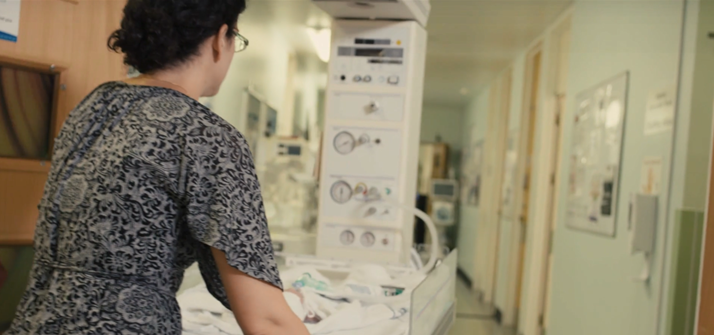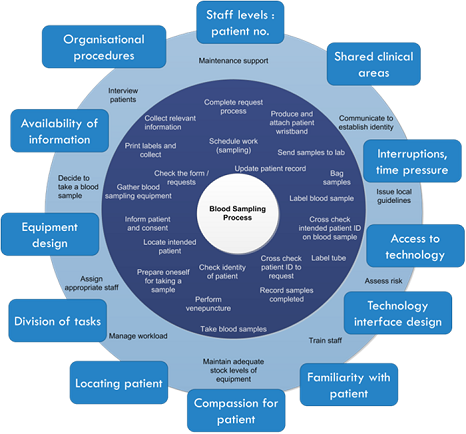Healthcare systems modelling

Healthcare delivery involves many complex systems interacting with each other. From interaction between users, to safe use of technology, from effective communications to workplace design, we research the system performance to optimise effective, safe and efficient delivery.
Socio-Technical Systems Approach
We have a long-standing reputation for our analysis of complex systems, gained from experience across multiple sectors. We apply this to healthcare to design for the whole system and the varying interactions that will occur within it
Led by the University's Human Factors Research Group, applications include
- understanding the micro, meso and macro elements of sociotechnical systems
- designing for the whole system and the varying interactions that will occur within it between users, technology, organisation structures, communications and workplace design
- understanding performance, risk and safety within a system
- exploring the influence of culture and human behaviour on the way a system operates

Above: Model of the interactions within a blood sampling process, including social, technical and organisational behaviour (click image for larger version)
Exemplar projects
- Task and Process Evaluation within a System – Right First Time: Blood sampling in acute hospital care settings (L Pickup, S Atkinson)
- Product User Evaluations for use in a specific Environment- Interactive TV systems and the implementation of adaptive personalised interfaces (S Cobb, A Floyd, R Edlin-White)
- User Requirements of GP Training Human Factors in Education development and provision (L Pickup, S Atkinson)
- Human Factors Considerations in Infection Prevention and Control and Medical Equipment Design in Neonatal Care (S Cobb, C Trudel)
Reliability and efficiency modelling
Health services are challenged to provide high quality care, to reduce errors and to work efficiently. Clinical care is often delivered via complex processes, in different environments and by multiple individuals with differing professional roles. Causes of unwanted variation in delivery of care, which is common in day-to-day clinical practice, can be complex to understand.
The project ComPACT: Computerised Performance Assessment
for Clinical Teams developed a video and audio analysis system that can reliably measure differences in the way that clinical teams perform. We also focussed on an observational feasibility study to test whether clinical process reliability and efficiency could be evaluated using the proposed sensor system.
A prototype ComPACT system was developed and trialled at Trent Simulation & Clinical Skills Centre at Nottingham University Hospitals NHS Trust.
CPR training scenarios were observed and analysed using the system. We also explored professional attitudes towards such a system, with emphasis on potential benefits to NHS, methods of automated data capture and analysis and future areas of application.
During the evaluation of the system, its objectivity and reliability were deemed highly valuable for the provision of formative assessment and feedback. Longer-term, such analysis can provide an understanding of the components of good practice, where practice could be improved and how errors may be prevented.
Experts
Dr Andrew Norris, Consultant Anaesthetist & Honorary Clinical Associate Professor led a multi-disciplinary team, consisting of Dr Rasa Remenyte-Prescott and Dr James Pinchin (from Faculty of Engineering), Dr Michel Valstar and Dr Mercedes Torres-Torres (from Computer Science).
Key publications
- Tse, S. (2017) ComPACT: towards Computerized Performance Analysis for Clinical Teams in health care – a simulation based study of feasibility and professional attitudes, BMedSc thesis, University of Nottingham
- Tse, S., Evley, R., Torres, M.T., Pan, T., Pinchin, J., Valstar, M., Remenyte-Prescott, R., Norris, A. et al. (2017) ComPACT: Computerized Performance Assessment for Clinical Teams. Int Assoc for Med Educ, AMEE conference 2017, Helsinki, Finland, 26-30 August.
.